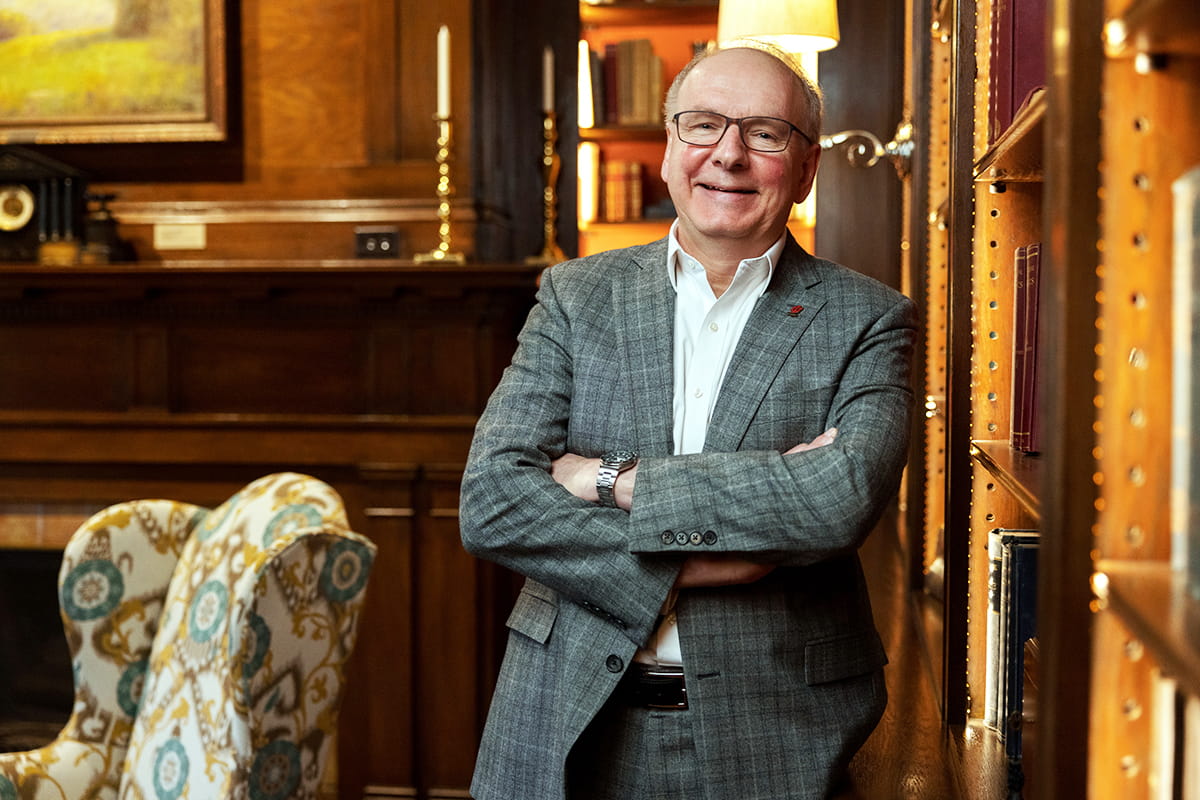From the Desk of Dean Hess

Jay Hess May 29, 2024
AT INDIANA UNIVERSITY School of Medicine, our mission is to prepare the next generation of healers and to transform health care through innovative medical research.
This edition of IU MEDICINE focuses on the preparation students receive in order to take on the important roles our state and our nation so urgently need — as physicians who will provide care, as educators, and as scientists who make discoveries that improve care.
We have much to be proud of in medical education. The Class of 2024 had a 98% residency match rate, and a 100% pass rate on the Step 2 licensing exam. A graduate survey showed 94% were satisfied with their medical education, well above the national average. And in the last 10 years, the diversity of our student body has doubled, while raising our academic profile.
The stories in this issue cover some fascinating topics.
We share the stories of three non-traditional students and the unique journeys that led them to medicine — not right out of college, as is most often the case for our students — but after exploring other careers and other paths through life.
You can learn about the important work we’re doing to train physicians to provide care in underserved places — including urban neighborhoods and rural communities. The people of Indiana deserve to have easy access to good health care providers, regardless of where they live. I’m proud of the work we’re doing at our campuses in Gary and Terre Haute — and with our clinical partners in and around those communities – to train them to serve in these settings.
I am also proud to highlight the work of our outstanding alumni. Lindsay Weaver, MD, Indiana’s state health commissioner and someone who did her residency training in emergency medicine at IU, is an excellent example of how we prepare our trainees for leadership in critical areas such as public health.
Finally, an important story I hope you’ll find interesting looks at the important work we’re doing at IU School of Medicine to control the cost of a medical education — and to help our students limit the debt they take with them upon graduation. Medical school remains expensive — and debt loads too high — but I want everyone to know about what the School of Medicine is doing to help our students finance their education and limit their debt. A key part of that is scholarships, which are largely possible because of supportive donors. We owe them a debt of gratitude for gifts that will pay forward for generations to come in the form of better care and better health.
Thank you for reading and for your interest in IU School of Medicine.
With gratitude,

Jay L. Hess, MD, PhD, MHSA
Executive Vice President for University Clinical Affairs
Dean of the School of Medicine
Walter J. Daly Professor
Indiana University